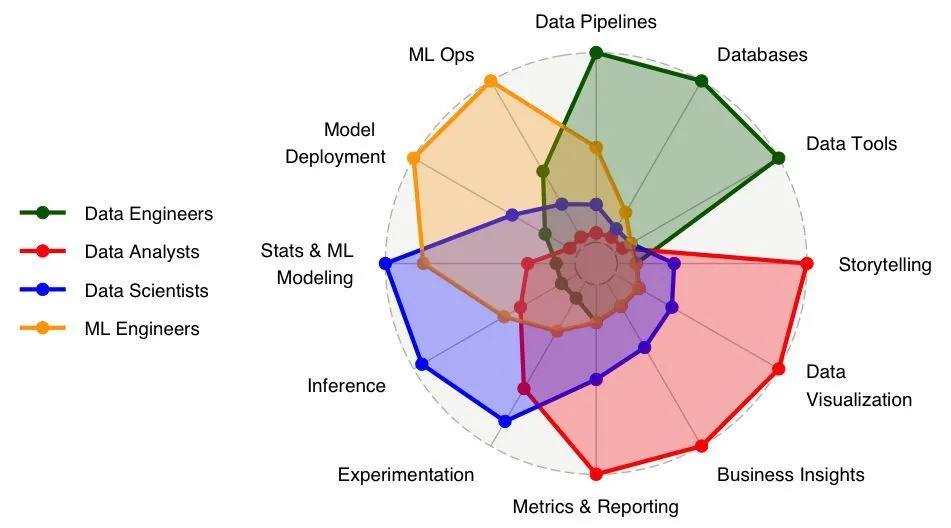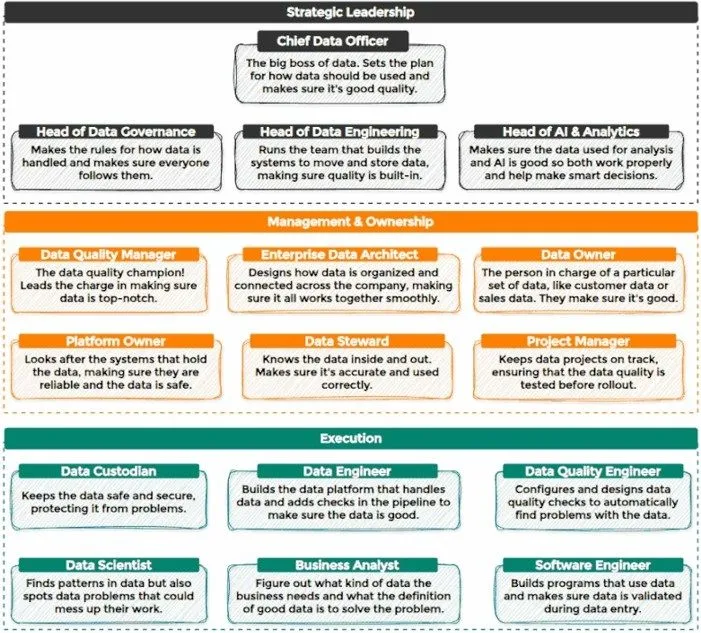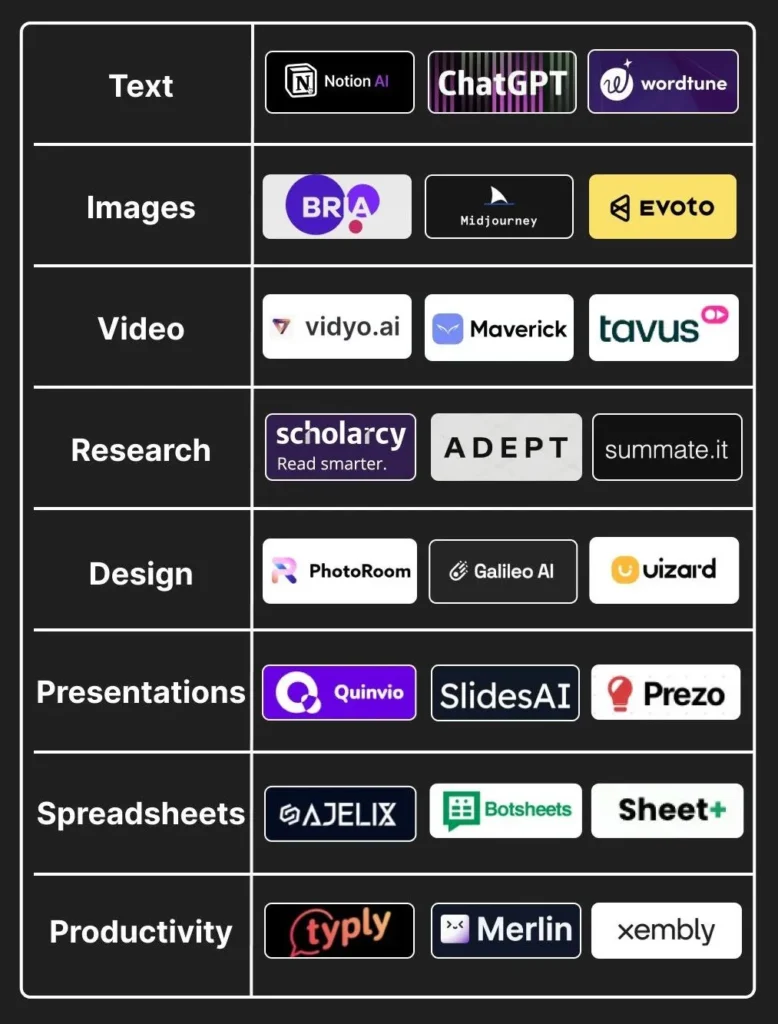The Essentials of Data Management
With the emergence of cloud computing, big data, and artificial intelligence, data science has become a rapidly growing profession. The convergence of these technologies has given rise to new and powerful approaches to developing business insights and decision making based on the analysis of vast amounts of data using advanced statistical techniques and complex machine learning algorithms.


Evolving Data Roles
The following courses enable candidates to gain skills in math, statistics, and programming to organize, analyze, and visualize data to uncover hidden solutions that challenge traditional business assumptions and produce entirely new operating and strategic models. Once completed, candidates will be be in a position to take advantage of the increasing opportunities in a wide range of data science and advanced analytics roles.
Prior to taking this course, candidates should have taken the Fundamentals of Information Technology Management course or its equivalent.
Program objectives:
- Gain the mathematical and statistical expertise required to carry out data analysis
- Develop essential data science skills in the R, Python, and SQL programming languages
- Develop a strong understanding of data management, including evaluating, structuring, cleaning of data for analysis, and security considerations
- Become familiar with how to apply the tools and techniques used in data visualization
- Develop a comprehensive knowledge of classical data analytics, including statistical inference, predictive modelling, and time series analysis
- Use new generation algorithms for supervised and unsupervised machine learning
- Apply a wide range of data science skills, knowledge and techniques within real world contexts, including building a portfolio of work to demonstrate a practical understanding.
Data Positions and Careers

40-Hour Synchronous Data Program Courses; Entry & Advanced Levels
Introduction to Data
The purpose of this introductory course is to provide a comprehensive overview of current and emerging trends in data, big data, and data management. In addition to preparing IT professionals interested in pursuing a career in managing data and business analytics with the important foundations of data, it provides a solid grounding for non-IT professionals.
Workforce Development
- This course or its equivalent is a prerequisite for the Entry Level Python program (described below) and the Deploying Data Technologies Certificate.
- Prior to taking this course candidates should have taken Fundamentals of Information Technology Management or its equivalent.
Deploying Data Technologies
Course topics include:
Introduction To Data
- What is data?
- What is big data?
- What is information? What is knowledge?
- Transaction versus master data
- Systems of record vs. systems of engagement
- What makes data an ‘asset’?
- Private data, purchased/licensed data, open data, personal data
- Machine data
- Data exhaust
- Meta data
- Structured data
- Unstructured data
- Video, audio, text
- Volatile data
- Sensor data
- Data in motion vs. data at rest
- Data as service
- Security considerations
- Other technical considerations including Hadoop open-source software utilities (e.g. IBM, Apache, Linux, Hadoop Distributed File System), Training Data, and programming considerations
Leveraging Data
- What does it mean to leverage data?
- Real world examples/case studies:
– Using big data to dominate competition
– Fraud detection example
– New business example
– Failed data management example
Data Governance Fundamentals
- What is data governance?
- Curation
- Laws ®egulations
- Provenance, lineage, authenticity
- Retention
- Discovery
- Security: authorization, access control, encryption, non-repudiation, auditing
- Privacy & Security
- Historical data, Data redundancy, archiving, retention
- Data standards
Data Management Foundational Practices
- Data quality, profiling, cleansing, defect prevention
- Master data
- Business glossary
- Data sharing
- Data integration
Advanced Data Management Concepts
- Record linkage
- Entity relationships
- Ontologies
- Context computing
Dealing With 3rd Party Data
- Licensing private data
- Licensing open data (commons)
- Data as a service (usage models, licensing)
- Managing providers
- Data sharing standards — e.g. JSON
Systems Dynamics & Data Strategy
- Data driven organization
- Data enrichment
- Principles of systems dynamics
- Applying systems dynamics to data/information architecture
- Understanding Business rules
- The Information Supply Chain
- Data Lifecycle Management
- Data architectures & models
- Data driven product design


1. Exploratory Data Analysis with Python
Exploratory data analysis enables candidates to perform data health checks and gain initial insights from data, and in this course candidates will gain an understanding of python programming basics and then cover the fundamentals of data management, descriptive statistics, and data visualization using Python. Course Topics:
- Python programming essentials
- Data management in Python
- Descriptive statistics
- Data visualization with Python
2. Data Analytics with Excel and SQL
Excel and SQL are a fundamental part of a data analyst’s toolkit. A strong understanding in these tools also provides a basis for more advanced data analytics with other techniques and technologies. In this course, candidates will gain experience in collecting, processing, analyzing, and communicating with data using Excel and SQL. Course Topics:
- Excel functions
- Data Analysis with Excel
- Data management with SQL
3. Data Visualization with Power BI / Tableau
Data visualization is a powerful way to communicate meaning in data while supporting business decision-making. This course will introduce candidates to the main commercial tools used in data visualization such as Tableau, Excel, and Power BI. It will enable candidates to create a wide range of graphs, charts, and dashboards while using them appropriately in context. Candidates will also gain experience in interpreting data graphically and communicating findings effectively to a business audience. Course Topics:
- Business intelligence tools
- Generate graphs and charts
- Build dashboards
- Interpret and communicate data visually
4. Statistics for Data Analytics
Statistical inference is the process of drawing conclusions from data using statistical/mathematical techniques. This is at the core of data analytics and data science, and a strong understanding of statistics is an essential ingredient in a competent data analyst. In this course candidates will cover the fundamentals of sampling, statistical distribution, hypothesis testing, and variance analysis, while applying Python code to carry out various statistical tests that derive business solutions from their output. Course Topics:
- Fundamental principles of statistical inference
- Standard parametric tests
- Analysis of Variance (ANOVA)
5. Fundamentals of Predictive Modelling
Solutions to many business problems are related to successfully predicting future outcomes. This course introduces candidates to predictive modelling and provides a foundation for more advanced methods/approaches/techniques. Candidates will gain an understanding of the general approach to predictive modelling while building simple linear regression, multiple linear regression and logistic regression models in Python, to apply their insights in a range of business contexts. Course Topics:
- Predictive modelling principles
- Build regression models
- Python for predictive modelling
6. Introduction to Machine Learning
In this course candidates are introduced to fundamental concepts of machine learning, why machine learning is possible, and a range of real-world machine learning applications. Candidates will then cover common machine learning algorithms and use Python libraries to implement these techniques. Course Topics:
- Fundamental machine learning concepts
- Machine learning algorithms
- Business applications
- Machine learning with Python



Advanced Python
The Entry Level Python program (described above) or its equivalent is a prerequisite for this Advanced Level Python program.
Advanced topics include:
a. Data Science with Python
b. Deep Learning with Python
c. Data Engineering with Python
d. Machine Learning with Python or R
e. NLP & Text Analytics with Python
f. Network Analysis with Python










